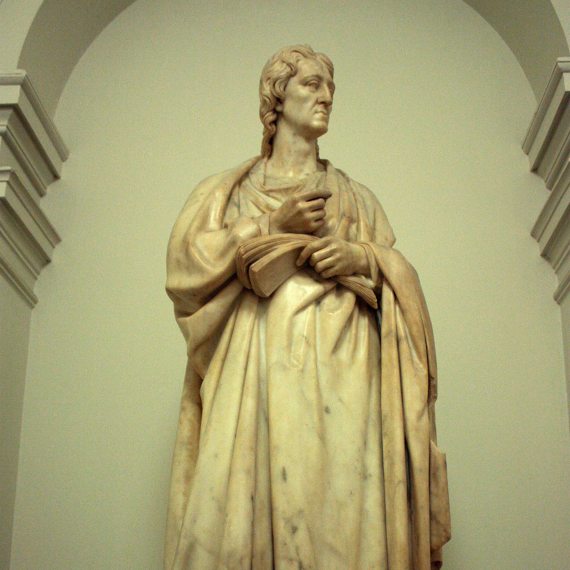The birth of modern science led to a train wreck with philosophy. The great achievements of Nicholas Copernicus, Galileo Galilei and Isaac Newton, among others, were a revolution that changed not only our way of seeing the world and the universe —dismantling many ideas based on tradition, religious faith and the theories of the scholars of antiquity— but also questioned how human knowledge works and what its limits are. The conflict between the followers of Aristotle and the new thinkers seemed intractable, until a British empiricist philosopher arrived on the scene. John Locke could have gone down in history just for that —as the great ally of science, who reconciled it with philosophy— but this is perhaps the least known facet of a thinker remembered above all for his political and economic ideas, for which he is considered the Father of Liberalism.

Born in a cottage on the outskirts of Bristol (United Kingdom) and the son of a rural lawyer, John Locke (August 19, 1632 – October 28, 1704) had access to the most prestigious education of his time, first at the Westminster School in London and then at Christ Church College, Oxford University. There he studied medicine and came into contact with great scientists such as Robert Boyle and Robert Hooke. But it was another encounter at Oxford that would mark his life. In 1666, the noble Lord Ashley arrived at the university looking for treatment for a liver infection; impressed with Locke, Ashley convinced him to accompany him to London and become part of his entourage, as a personal physician.
Lord Ashley had founded the Whig movement, the forerunner of the British liberal party, and persuaded Locke to enter politics during some turbulent decades in London. In fact, Locke had to go into exile in the Netherlands for a few years on suspicion of his involvement in the Rye House Plot (1683), a conspiracy to assassinate the king of England. After the 1688 Revolution and the overthrow of James II, Locke returned to England. It was then that he wrote An Essay Concerning Human Understanding, published in 1689, in which he rejected the “innate ideas” advocated by those such as Aristotle in classical Greece to Rene Descartes in Renaissance Europe.
Human mind, a blank sheet of paper.

In this work, which established an ideological and philosophical base for the new science —driven by figures with whom he himself came into contact, such as Isaac Newton— John Locke postulated that at birth the human mind is like a blank sheet of paper, in a state of tabula rasa, without knowledge. Without innate ideas, the first source of knowledge is experience, derived from perception that comes to us through the senses.
“A philosophical tradition, stemming from Aristotle and including Bacon and Descartes, embodies the view that the proper aim of of science is certain knowledge of the real essences of things. The growth of empirical science in the 17th century, led to the implicit rejection of the traditional ideal for science. While writers on scientific method continued to recognize the certainty of demonstration in mathematics, they regarded empirical scientific propositions as always subject to doubt in the face of further evidence,” explained Margaret J. Osler, a science historian who was a great scholar of the Scientific Revolution. According to this researcher, this strong contradiction between modern science and traditional philosophy required a new theory of knowledge, or epistemology, which would assume that degree of uncertainty for all empirical knowledge, based on experience.

In order to advance in their astronomical, physical or chemical knowledge, the scientists of that time needed to develop empirical methods, and as a consequence they ended up becoming separated from philosophical ideals. Locke took the first big step towards a new philosophy of science that did not require a break with all that had gone before in order to escape from the intellectual crisis. According to Margaret J. Osler: “By insisting that knowledge and certainty are equivalent, he remained at one with the Aristotelian and Cartesian traditions.” In recognizing, however, that a large proportion of the claims we make can never achieve certainty about the true essence of the exterior world, he came to terms with the limitations of the old ideals that Boyle and Newton challenged.
The advances of the Scientific Revolution radically expanded our knowledge of the world, and at the same time they did away with certainty, giving rise to a new form of knowledge based on probability. After more than three centuries and many scientific advances, philosophy has now adapted, but every day the human mind is still faced with the personal contradictions inherent in accepting this far-from-secure paradigm.
Comments on this publication